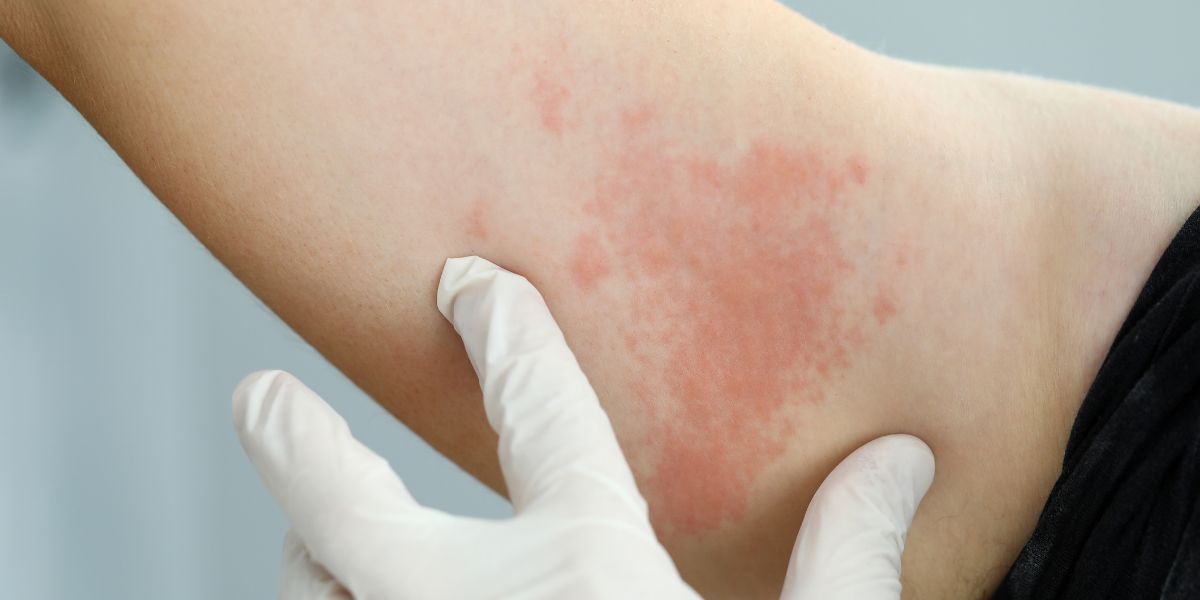Inflammation tends to remain in people with psoriasis, despite their skin responding well to treatment with biologics, latest evidence has revealed.
Residual inflammation is associated with an increased risk of health complications, including fatty liver disease, cardiovascular disease and obesity, a new study has demonstrated.
Chronic inflammation is also common among people with chronic kidney disease, type 2 diabetes and cancer, researchers have said.
Health experts are now calling for more targeted treatments for psoriasis that go beyond just the skin.
First author Dr Álvaro González-Cantero said: “Patients with psoriasis have a reduced life expectancy due to an increased risk of cardiovascular disease.
- High intake of pomegranate associated with reduced inflammatory markers
- Western diet associated with weakened immunity and inflammation
- Aspartame may increase insulin levels and inflammation, study finds
“With the goal of better understanding this, we wanted to explore psoriasis as a systemic disease and its broader health implications.”
As part of the trial, the team of researchers analysed the residual inflammation in 209 people with psoriasis.
They found that residual inflammation was present in 36.3% of the participants, particularly those with a higher BMI, increased baseline systemic inflammation, metabolic dysfunction-associated steatotic liver disease (MASLD) and greater adipose tissue.
Dr González-Cantero said: “Our present study offers novel insights into psoriasis management by characterising residual inflammation in patients undergoing biologic therapy across three independent international cohorts.
“This is particularly important now because it highlights that despite achieving good skin responses with biologics, a significant subset of patients, predominantly those with obesity (especially central obesity), higher baseline systemic and organ inflammation (as shown by PET/CT), increased subcutaneous and visceral adipose tissue, and markers of MASLD, continue to exhibit residual inflammation.”
Dr González-Cantero added: “This underscores a critical unmet need to address the systemic inflammatory burden beyond skin symptoms in psoriasis, potentially requiring interventions targeting obesity and metabolic dysfunction to improve overall patient outcomes.”
Corresponding author Dr Alba Lecumberri said: “The strong association identified between residual inflammation and obesity, particularly central obesity and markers of hepatic inflammation, suggests that these patients may benefit from a more intensive cardiovascular risk assessment and management.
“This could involve closer monitoring of inflammatory markers like high-sensitivity C-reactive protein, as well as parameters related to liver health, by integrating lifestyle modification or weight management strategies, potentially leading to earlier detection and intervention for associated comorbidities.”
Dr Michael Garshick commented: “This research emphasises the elevated cardiovascular risk in patients with psoriasis and that dermatologists (and rheumatologists) should be at the forefront of recognising the cardiometabolic and cardiovascular concerns in the psoriasis patient population.
“An elevated high-sensitivity C-reactive protein testing can be used to further refine assessment of which psoriasis may be candidates for both lipid lowering and weight loss treatments.”
- High intake of ultra-processed foods associated with lower grades in school
- High intake of ultra-processed foods can accelerate biological ageing
- High intake of ultra-processed foods associated with osteoarthritis
Co-author Dr Emilio Berna-Rico said: “We believe this to be a relevant study for dermatology, as it has assigned the term ‘residual inflammation’ for the first time in psoriasis patients, taking into account the systemic inflammation of the disease.
“We hope that our results can pave the way for a broader approach in psoriasis research, which will allow us to mitigate the effects of systemic inflammation and improve patient management through the use of the innovative therapies available to us, in addition to educating patients on a healthy and anti-inflammatory lifestyle, in collaboration with other healthcare professionals.”
Dr Joel M Gelfand explained: “Despite excellent control of skin disease, a substantial percentage of psoriasis patients demonstrate residual systemic inflammation.
“These findings emphasise that just treating the skin signs of psoriatic disease is not sufficient, and patients often need additional approaches to lowering systemic inflammation.”
Read the study in the Journal of Investigative Dermatology.









